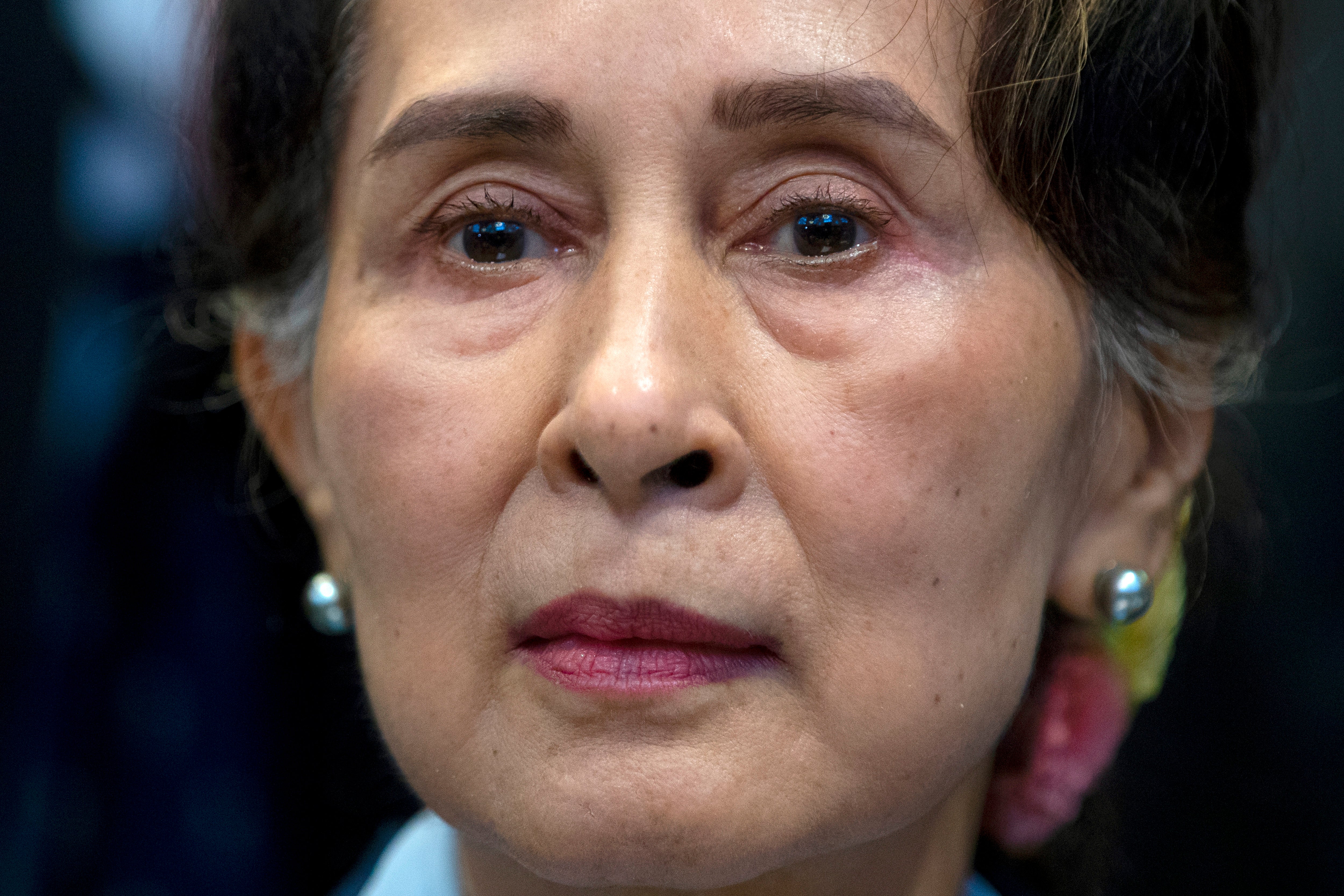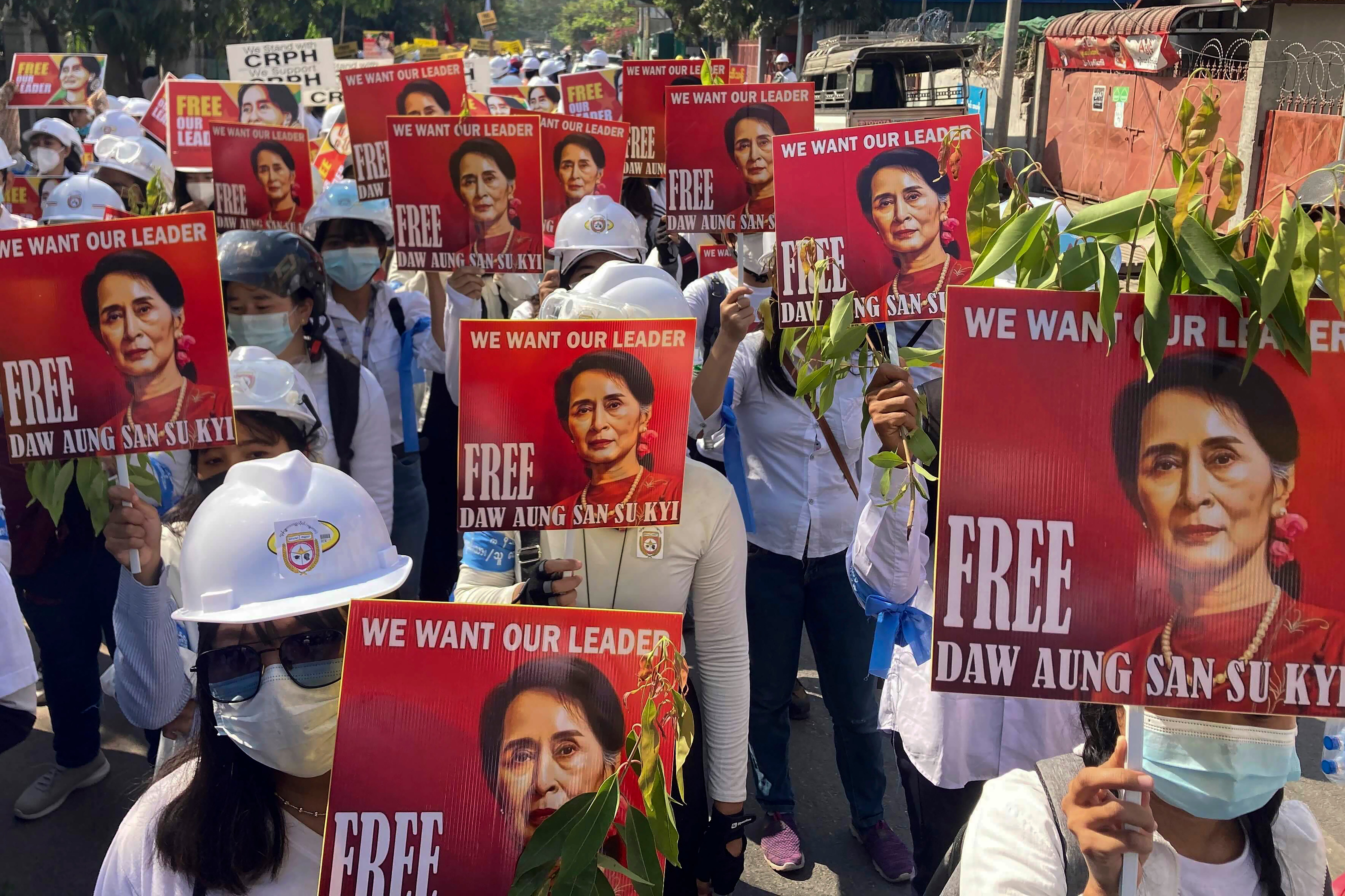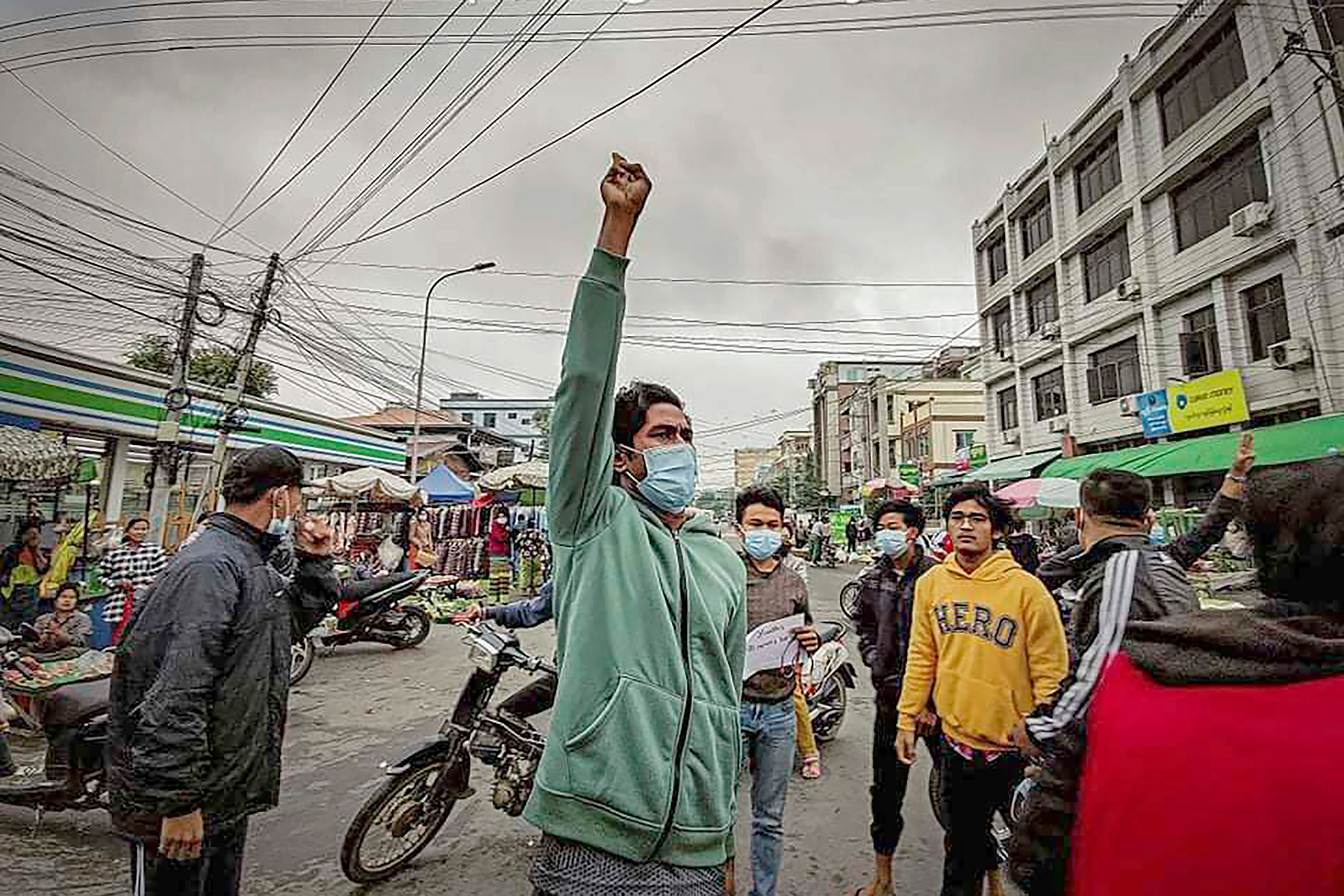Why the Aung San Suu Kyi verdict could galvanise Myanmar’s resistance movement
The fallout from the sentencing may not only spur more protests at home but provoke stronger action from world powers, writes Allegra Mendelson

The imprisonment of Myanmar’s deposed leader Aung San Suu Kyi represented a stark statement of intent by the military junta, but opposition figures hope the verdict will galvanise the resistance movement and spark stronger sanctions from the international community.
Suu Kyi was sentenced to four years in prison on Monday for incitement and breaching coronavirus regulations, but the junta leaders reduced it to a two-year term of detention in her current location, which has not been disclosed but is reportedly similar to house arrest.
The Nobel Peace Prize laureate was placed under house arrest during a military coup on 1 February after her party, the National League for Democracy (NLD), won a landslide victory in the country’s November 2020 elections.
Since the coup, Myanmar has been plunged into chaos, with protests erupting across the country and escalating clashes between the military and the resistance movement.
The military has arrested and detained their opponents – including Suu Kyi and leaders of the NLD – slapping many with seemingly trumped-up charges that carry life imprisonment.
While the partial pardon granted to Suu Kyi came as a surprise, Myanmar watchers said it must not distract from the fact the 76-year-old is facing a total of 12 charges that could ultimately see her jailed for more than 100 years.
Some analysts and activists believe the verdict will spur more protests; others say it could provoke stronger action from world powers.
“These are trials by kangaroo court, they are not fair trials by any stretch of the imagination,” said Chris Sidoti, a founding member of the Special Advisory Council on Myanmar, an independent group of experts. His comments have been echoed by bodies such as the UN and EU and countries including the US and UK.
“(The junta) are trying to send the message that this person can be held for the remainder of his or her life – that they are going to die in jail,” Sidoti told The Independent.
Once a revered icon of peace and democracy, Suu Kyi’s international reputation began to suffer in 2017 when she failed to address or denounce military violence against Myanmar’s Rohingya community, which has been widely condemned as genocide.
Yet at home – where she is affectionately known as “the Lady” – she has remained a popular figure, making her a prime target for the military regime.

Suu Kyi was tried alongside former president Win Myint and the ex-mayor of Naypyidaw, Myo Aung. Win Myint was given the same four-year sentence and the two-year pardon, while Myo Aung was jailed for two years on the incitement charge alone.
According to the military’s state-run media, all three will serve their sentences “in their current location”, which means they are likely to remain under house arrest instead of being sent to one of Myanmar’s notorious prisons.
Suu Kyi is set to face various other charges, including illegally importing walkie talkies, the verdict for which had also been expected on Monday but was postponed, as well as at least four corruption charges, which carry maximum sentences of 15 years in prison each.
“It is well known by all in the country that the charges are fabricated, witnesses are under duress or bribed, and judges are pressured to deliver extreme sentences,” said Dr Sasa, a spokesperson for the National Unity Government (NUG), a shadow government set up after the coup.
“They want to send a strong message to all pro-democratic people: to destroy all democratic movements in the country so they can establish a military dictatorship forever.”
While the trial was held behind closed doors, a senior Myanmar junta official used a rare media briefing on Tuesday to say that Suu Kyi’s sentencing was lawful and that the army had commuted her sentence on “grounds of humanity”.
I think there will be a spike in protests
But the pardon is straight out of the military’s playbook. The regime has a habit of first laying down the law, then feigning mercy by reducing sentences, especially following outcry or condemnation.
Last month, US journalist Danny Fenster was sentenced to 11 years in prison on various charges, only to be pardoned and allowed to leave the country a few days later. And back in 2009, former military general Than Shwe halved Suu Kyi’s three-year sentence for breaching the conditions of her previous house arrest.
Since the coup, protesters across the country have taken to the streets calling for Suu Kyi’s release and an end to military rule.
Nearly 7,800 people have been detained for opposing the coup, while more than 1,300 people have been killed by the junta since February, according to the Assistance Association for Political Prisoners, an activist group.
Ahead of Monday’s hearing, a small, peaceful protest gathered on Sunday in Myanmar’s largest city of Yangon, only to be met with a violent response from security forces as they drove a truck into the crowd and shot at protesters. At least five people were killed and another eight injured, according to the local news outlet Myanmar Now.
While protests have decreased in size in recent months, Sunday’s crackdown and Monday’s verdicts are expected to trigger an uptick in rallies in the coming days.
Anti-military protests were held on Monday and Tuesday across the country in solidarity with the people of Yangon, with some also holding banners with images of Aung San Suu Kyi.

“I think there will be a spike in protests,” said Thinzar Shunlei Yi, a leader in the civil disobedience movement (CDM) who has been forced into hiding.
“We are always looking for any way to go against the junta and protest at all costs.”
While Sasa said he did not expect there to be a big wave of protests like those that followed the coup in March, he said more soldiers could defect to the CDM because they would “no longer be able to defend the military’s acts” after Sunday’s violence.
Thousands of soldiers and police officers have broken from the military since the coup to join the CDM, according to the movement, with many citing safety concerns and opposition to the junta’s violence as reasons for their departure.
However, Sasa and Sidoti said the biggest impact of Suu Kyi’s sentencing could be the reaction from the international community.
The NUG has called on the world to recognise them as Myanmar’s legitimate government, step up sanctions against the military rulers and target off-shore gas projects that are considered to be a financial lifeline for the junta.
“The real impact of the verdict is going to be outside of Myanmar,” said Sidoti. “It may shake up international opinion into realising that the situation in Myanmar is worse than it was on 1 February. It has not gone away, and it will not go away until the military goes away.”






Join our commenting forum
Join thought-provoking conversations, follow other Independent readers and see their replies
Comments